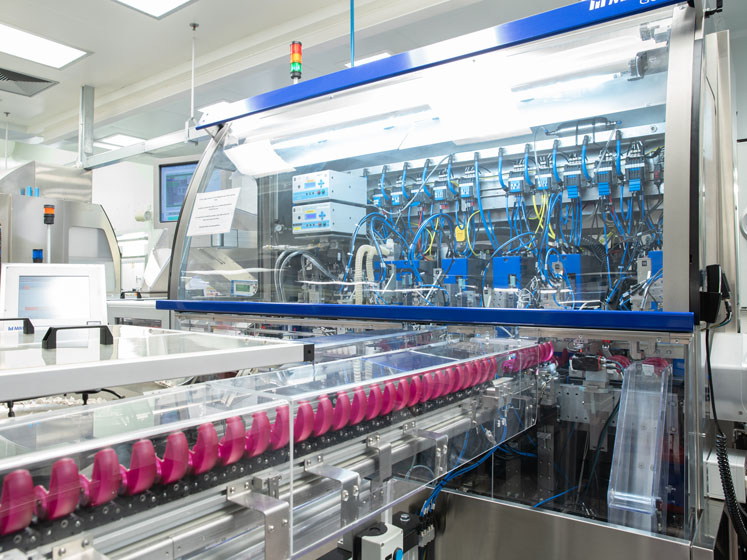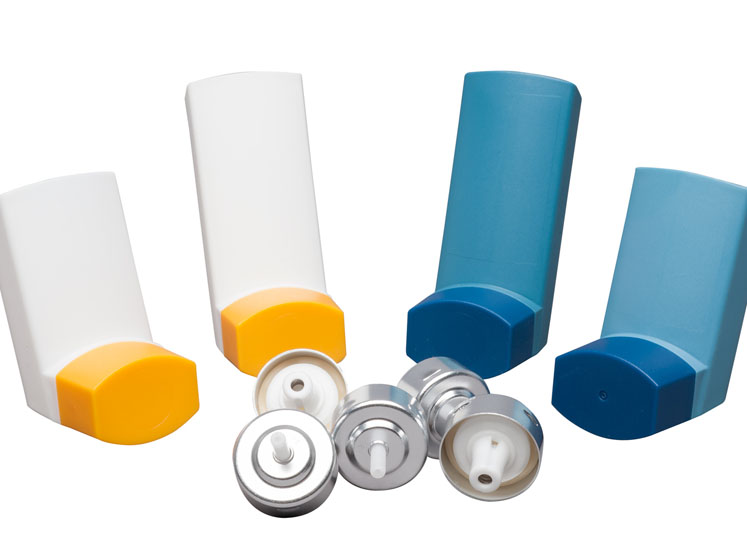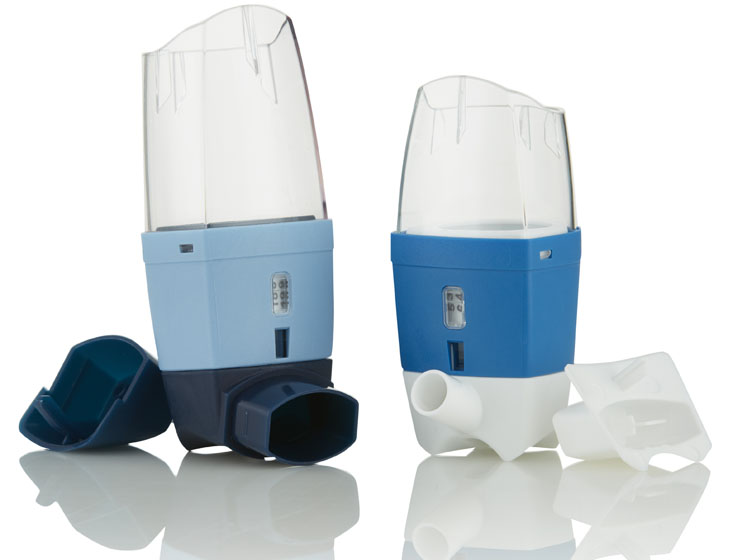However, there has been significant change in recent times with large pharmaceutical companies incorporating sustainability objectives into their values and mission statements.
For example, Teva Pharmaceutical Industries has published its Sustainable Development Goals in line with UN Sustainable Development Goals (SDGs), GlaxoSmithKline has embarked on its 7Rs of Waste Hierarchy and AstraZeneca has also published its Sustainability Strategy.
In May 2019, Chiesi Farmaceutici became the first global pharmaceutical company to qualify as a Certified B Corporation, balancing purpose and profit, and it has an ambitious sustainability agenda driven from the highest echelons of the company, which also incorporates the UN’s SDGs. This focus also extends to supplier partnerships to reduce the environmental impact of the industry across the supply chain.
At Bespak, we are also evolving our sustainability strategy, which considers a holistic approach that incorporates the efficient use of energy, recyclability, reusability and the overall reduction of our carbon footprint, all while maintaining our commitment to our partners to create novel solutions for robust patient focused devices.

Our initial focus has been on defining and measuring sustainability metrics, which include greenhouse gas emissions, energy usage and mix, water pollution and waste generation. This data allows us to understand our environmental footprint so we can target areas where the greatest and also the quickest progress can be made.
For example, measuring the energy used by individual buildings and equipment allows us to optimise and reduce power consumption.
We are also considering the reduction, recyclability and reusability of secondary packaging such as cardboard, pallet and plastic packaging with the objective of eliminating unnecessary packaging and maximising reusability and recyclability when using such packing is unavoidable. In addition, we are working across our supply chain to reduce the environmental impact of our business more generally.
Bespak is involved in the manufacture of devices for both dry powder inhalers (DPIs) and pressurised metered dose inhalers (pMDIs), which account for around 90% of all inhaler products — with Soft Mist Spray inhalers and nebulisers accounting for the remaining 10%.
The more immediate initiatives around these complex combination products centre around recyclability. This can be seen in AstraZeneca’s “Product Take Back” or GSK’s “Complete the Cycle” initiatives, which are aimed at patients returning used inhalers to recycle, and Boehringer Ingelheim’s introduction of its reusable soft mist inhaler in 2019.
However, I believe that the more medium-term initiatives in inhaler products and device developments will centre on reducing plastic content, using faster degrading plastics and formulating pMDIs with newer propellants with even lower global warming potential (GWP).

There has been considerable discussion in the industry regarding the carbon footprint associated with pMDIs. However, context is important; for example, the equivalent carbon dioxide emission of a single burger is around nine times that of an asthma inhaler.
The amount of R-134a hydrofluorocarbon propellant used in pMDI products contributes to an estimated 5% of the total global R-134a usage, which has now been restricted because of its GWP. There have been articles suggesting a switch from pMDIs to DPIs, but these have already been countered by opposing narratives.1,2
These discussions illustrate that complex combination products, such as pMDIs and DPIs, are not easy to replace or substitute. Nevertheless, there are now initiatives under way to formulate pMDIs with alternative propellants with a lower GWP and both AstraZeneca and Chiesi have made recent announcements to this effect.
As a global leader in respiratory device development and manufacture, combined with close client partnerships, Bespak is well positioned to be at the forefront of the next generation of devices.
Bespak’s innovation team, established in March 2010, now has more than 30 highly skilled individuals tasked with nurturing new ideas and turning them into tangible devices to address unmet needs in the pharmaceutical industry.
With a skill set that spans mechanical engineering, human factor evaluation, performance testing and quality expertise, the team is driven to develop best-in-class products for our clients. We are already busy working on a growing number of opportunities to develop new technology platforms with our proprietary technology.
For example, the company’s injectables franchise activities include an innovative gas-powered autoinjector technology that’s designed to support the safe operation of single-use syringes capable of injecting higher viscosity liquids.

Using liquefied gas as a power source, our VapourSoft technology is able to facilitate the administration of a variety of drugs — from free-flowing liquids with viscosities that are similar to water, all the way through to viscous formulations resembling treacle or even gels. This technology enables patients and healthcare professionals to administer previously difficult-to-deliver medications.
We are witnessing a growing demand for products that serve this technically challenging area, particularly with the growth of large molecule biological drugs that are often highly viscous.
Given Bespak’s strong heritage and continued investment in innovation, we look forward to continuing to develop more flexible and effective solutions that will balance sustainability benefits and pharmaceutical performance for our leading customers in the medical drug delivery market.
References
- A.J.K. Wilkinson, et al., “Costs of Switching to Low Global Warming Potential Inhalers. An Economic and Carbon Footprint Analysis of NHS Prescription Data in England,” BMJ Open 9:e028763. doi: 10.1136/bmjopen-2018-028763 (2019).
- M.L. Levy, “Inhaler Devices and Global Warming: Flawed Arguments,” https://bmjopen.bmj.com/content/inhaler-devices-and-global-warming-flawed-arguments.
